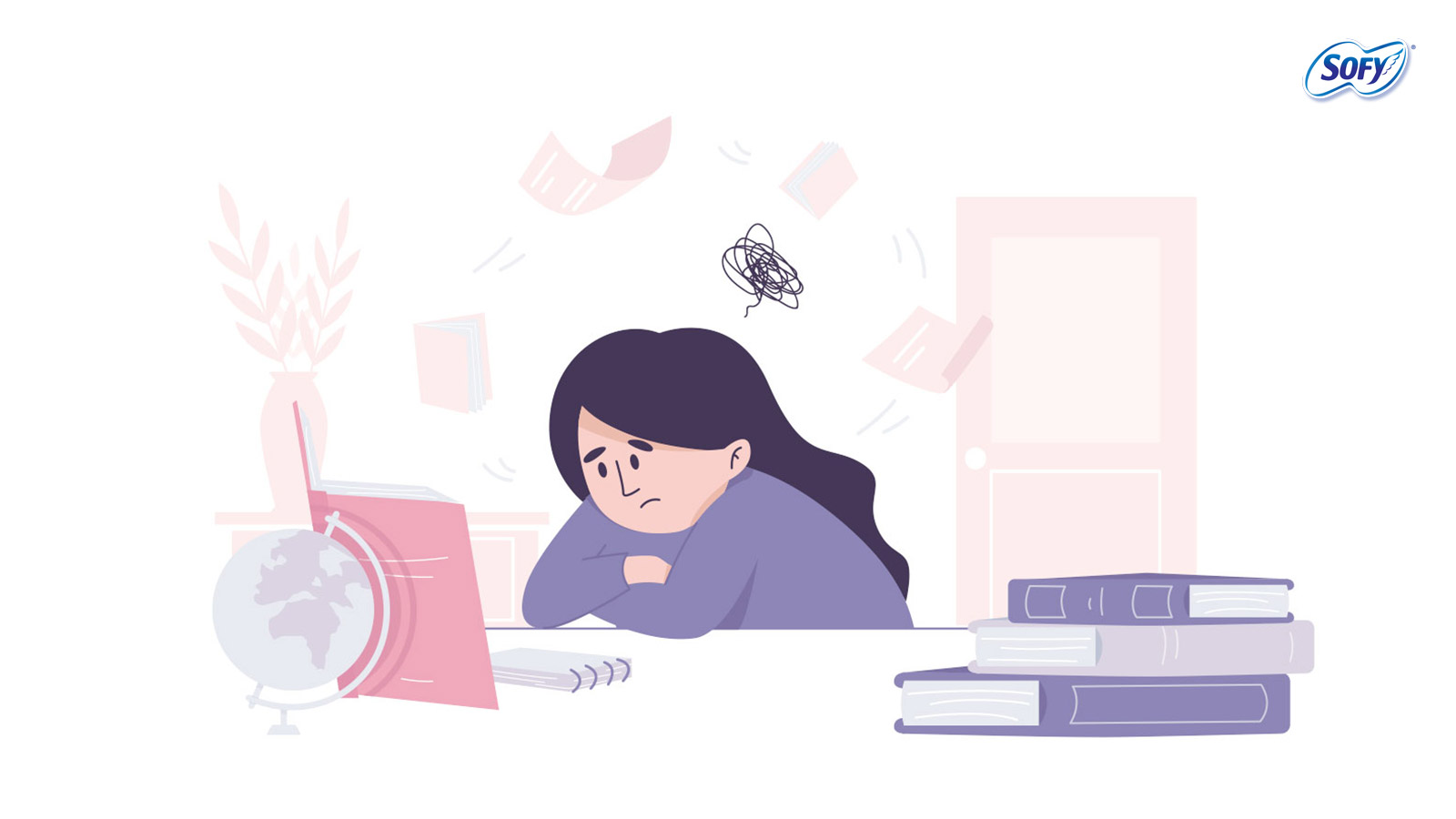Periods bring with it symptoms like fatigue, mood swings, severe pain, food cravings, headache and other bodily changes. Amidst all these changes, it becomes difficult for one to concentrate and study for the exam. PMS symptoms can put a lot of stress along with the pressure of exams. Painful periods are often a result of hormone imbalance or sometimes some other serious condition. Below are a few tips one can follow for coping with painful periods during exams:
- Drinking lots of water helps in reducing the effect of PMS symptoms on the body. When girls are on their periods, it is suggested to drink at least 1.5 liters of water. While giving the exam, it is beneficial to carry a water bottle along so that the body does not get a chance to get dehydrated.
- Eating a healthy and well-balanced diet is imperative during the examination time. Consuming magnesium-rich foods including fresh fruits, green vegetables, nuts and seeds helps in relaxing the tense muscles and cramps. Eating unhealthy food depletes the level of magnesium in your body paving way for cramps and pain.
- Use a heating pad for reducing cramps and pain being felt in the abdomen. It gives a temporary relief from pain and makes a person ready to give a 2-3 hour long exam. The pain receptors get dull and heat receptors get activated which nullify the pain.
- Keep a check on the bowel movements since slow bowel movements signify of congestion in the stomach. The congestion of the stomach creates a physical mass and pokes into the sensitive womb. To keep the bowels moving, one should increase the intake of fibre and start drinking large amounts of water.
- Stay organised during your exams in order to avoid cases of leakage and staining of clothes. If the periods have not started and you are feeling cramps in your abdomen, then as a precaution, wear a sanitary napkin/tampon to the examination hall.
Performing specific exercises to reduce the amount of pain during periods is suggested. Going out for a walk/jogging can help reduce the symptoms of PMS. Exercising helps in the release of neurotransmitter called dopamine which helps in relieving the symptoms.
FAQ’s
2. What are some quick remedies for period pain relief during exams?
Quick remedies include using over-the-counter pain relievers like ibuprofen, applying a hot water bottle or heating pad to the lower abdomen, and practicing deep breathing or relaxation techniques to reduce tension and pain.
3. How can hydration help with period pain during exams?
Staying hydrated helps reduce bloating and cramping, which can contribute to period pain. Drinking plenty of water helps maintain electrolyte balance and supports overall bodily functions, reducing the severity of menstrual cramps.
4. What role does diet play in managing period pain during exams?
A balanced diet rich in fruits, vegetables, whole grains, and lean proteins can help reduce period pain. Avoiding caffeine, sugary snacks, and processed foods can prevent bloating and discomfort, helping you feel more comfortable during exams.
5. How can exercise help alleviate period pain during exams?
Light exercises, like stretching, walking, or yoga, can help alleviate period pain by improving blood circulation, reducing muscle tension, and releasing endorphins, which act as natural painkillers and mood enhancers.
6. Why is it helpful to practice relaxation techniques during exams if experiencing period pain?
Relaxation techniques such as deep breathing, meditation, or progressive muscle relaxation can help reduce stress and anxiety, which often exacerbate period pain. Staying calm and focused helps manage both pain and exam-related stress.
7. Can maintaining a regular sleep schedule help with period pain during exams?
Yes, maintaining a regular sleep schedule helps the body recover and manage pain more effectively. Adequate sleep can reduce stress, improve mood, and enhance your ability to cope with both pain and exam pressure.
8. What should you avoid doing during exams if you have period pain?
Avoid consuming too much caffeine or sugar, which can increase anxiety and bloating. Also, avoid sitting for long periods without moving; take short breaks to stretch or walk to relieve tension and improve circulation.
9. How can you prepare in advance to manage period pain during exams?
Prepare in advance by packing essential items such as pain relievers, a hot water bottle, healthy snacks, and water. Knowing the exam schedule and planning breaks for relaxation or light exercise can also help manage pain effectively.
10. When should you seek medical advice for period pain affecting exam performance?
Seek medical advice if period pain is severe, persistent, or significantly impacts your ability to concentrate or perform well in exams. A healthcare provider may recommend specific treatments or medications to manage the pain more effectively.

